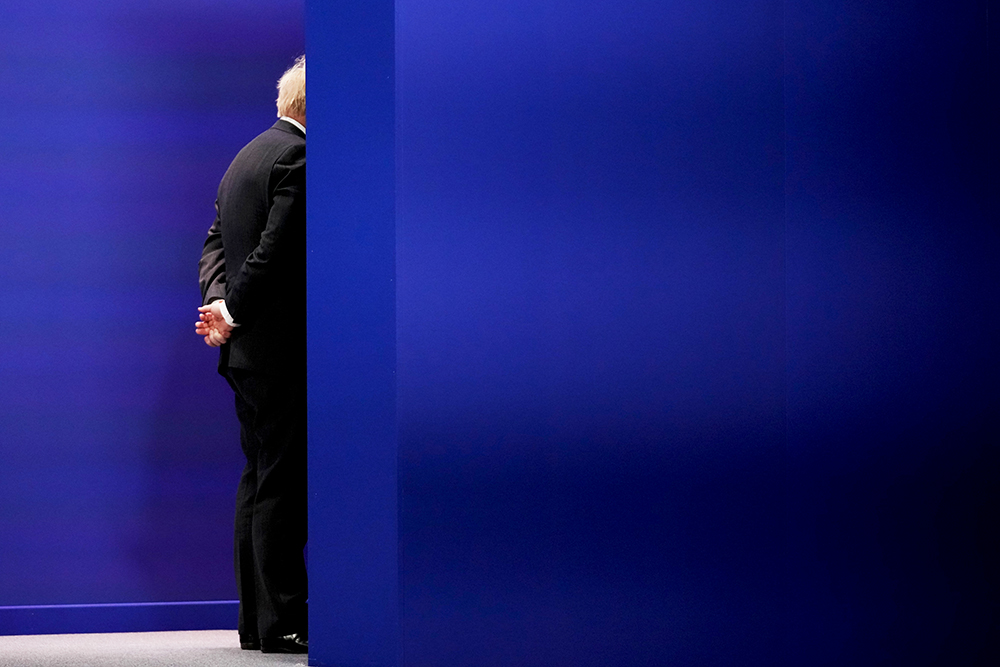
Recently, the Conservatives celebrated being in continuous government longer than their Labour predecessors. So how do the two compare? Actually, simply to pose the question “Which were more successful: the Blair-Brown years or the Cameron-May-Johnson-Truss-Sunak ones?” is to supply all the information you need for the answer. In the past 13 years the Conservative Party has produced an assortment of misfit ideologues and casual personalities obsessing about intangibles such as Control, and Freedom, but then shirking the discipline needed to achieve those ambitions.
Instead they piled in on top of each other like buzzards around a warm corpse, resulting in an anarchic churn of government ministers: vital departments such as the Treasury, education and health went through the sort of personnel changes that, in an equivalent business, would have driven down the share price to disastrous levels. Would you invest in a company that had five owners in 13 years? How safe would you feel staying in a hospital that had gone through six changes of management in five years? And what reservations would you have about depositing all your savings in a bank that’s had six branch managers in seven years, or sending your kids to a school that has had nine head teachers in nine?
[See also: The Tory crack-up]
Amazingly, though, Rishi Sunak will fight the next election on the premise he represents stability. It’s as if he is asking to be thanked for reducing a fire to dying embers, instead of being blamed for the roaring blaze that destroyed your home the night before.
I’ve been struck by how difficult it is to think of a landmark Tory initiative in the past 13 years that’s been of lasting benefit to the country. The legalisation of gay marriage is probably it, but after that the record is austerity, the Big Society, Brexit and loads of toxic sludge. It is, however, Keir Starmer who is required to show he’s competent enough to lead the country and it’s his plans and their cost that are going to be tested. There seems to be no such pressure on Sunak, who can promise to stop the boats or halve inflation without explaining how he will do so. Why?
Perhaps we’ve been too easily conditioned by the Conservative narrative that they are the natural party of government so don’t need to show their working. But we should be calling time on these assumptions before it’s too late.
The Tories claim they’re the party for hard-working people, but that claim is false, since the right is very, very lazy. They might call it an ideological commitment to the smaller state, to deregulation, the cutting of red tape, and the bonfire of anything that looks scarily interventionist, but these are automated responses from people who fundamentally can’t be bothered.
It’s visually captured in that photo from 2017 of David Davis sitting down to negotiate Brexit without any notes. The Liam Fox quote that the Brexit deal should be the easiest deal in the world gives added depth to the sloppiness.
Boris Johnson seemed to rejoice in how little attention he paid to detail, although that killed some of us; the European Research Group pushes “It’ll all be fine, and if it isn’t, it’s someone else’s fault” as a working mantra; Theresa May spent most of her time in office telling those in her party that everything’s a lot more complicated than they think, so they booted her out. Sunak gave the same warning, so they didn’t vote for him either. He may be Prime Minister now but it’s only to undo the hypersonic indolence of Liz Truss, who shut her eyes to reality and presented the country with an uncosted economic plan written one morning over poached eggs at Kwasi Kwarteng’s house. And the whole cavalcade of mayhem was kicked off by David Cameron, who did very little to prevent Brexit and then whistled as he left office.
On the several occasions when hard work becomes unavoidable – usually when previous inaction is about to lead to the complete destruction of their country – Conservative ministers feel justified in Instagramming a photo showing them staying up at night. Some of them go further and hold parties to celebrate the sheer bloody hard work they have got through in recent days, even when the law might be telling the rest of us we can’t even go out and sit on a park bench.
The truth is, for the past 13 years people with low energy and an aversion to scrutiny have risen to the top, infected by the illusion that power is all about telling people to do what you want without waiting to hear whether what you want makes any sense. Their default position is to do nothing, and their resting face is one of eyes rolling upwards when presented with something (the pandemic, the war in Ukraine) that looks like it’s going to require several all-nighters.
This is why we now have so much unworkable legislation: borders down the Irish Sea that are and aren’t there; expensive charter planes to Rwanda sitting in a hangar; green energy targets that seem to involve opening more coal mines, and police powers to arrest people who might be about to do something with glue (with no evidence strong enough for a conviction, since arrest took place before the suspected crime). All this, because people couldn’t be bothered putting in the hours to test the details.
In the end, we need to remember that “laissez faire” is just Tory sleight-of-hand for “fairly lazy”.
[See also: The right have a secret: they are the true snowflakes]
This article appears in the 31 May 2023 issue of the New Statesman, The Rise of Greedflation






